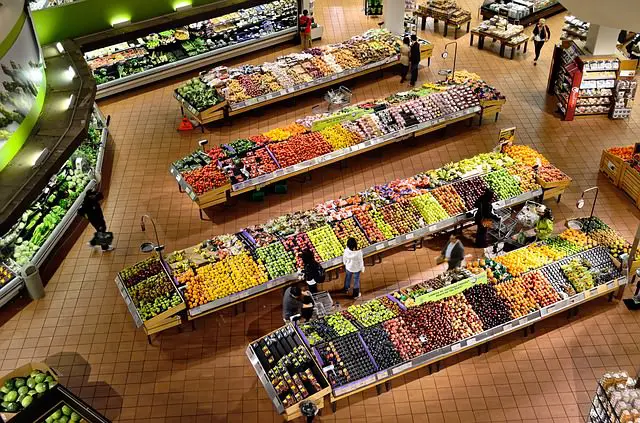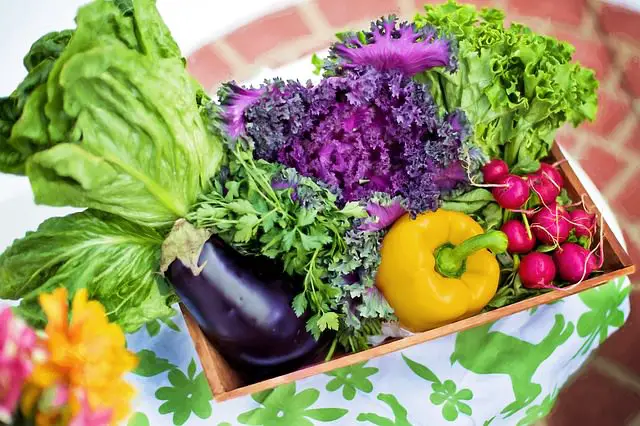How our food is produced and where we buy it has an enormous environmental impact. Consumers have the power to influence what is produced and how. This has been emphatically demonstrated in the way the introduction of GM (genetically modified) foods has been stalled. Most supermarkets now label foods which contain genetically modified ingredients. But, in products such as maize oil, GMOs may still be present, unlabelled. Consumers should avoid all GMOs not just because of the lack of information as yet about long-term health risks but also because of the potential effect of the farming of GMOs on the environment. GMOs cannot be kept to an area of land; seeds are blown by the wind into non-GM crops. Some GMOs also disrupt the food chain, by massively increasing the concentration of pesticides, and potentially creating immunity in pests. Greenpeace and Friends of the Earth actively campaign on these issues. Pesticides used in intensive agriculture may be responsible for decimating wildlife and also have potentially dangerous impact on human health if they accumulate in the body. The best way to avoid both GMOs and pesticides is to look for certified organic food. Sustain and The Soil Association insist organic is best not just for health reasons but because it is “sustainable” i.e. avoids conventional pesticides which are petro-chemically based and use more human labour which is renewable energy.

Organic food is available through a wide range of outlets. Direct marketing schemes include farm shops, farm gate sales, market stalls and box schemes, as well as increasing supermarket sections.
Box schemes have taken off in a spectacular fashion in the last three years. There are a number of different models but all are based around the central principle of delivering a box of fresh, seasonal organic food for each subscribing household, either directly to the door or to a central drop off point. Box schemes may be operated by an individual grower or they may be operated by a wholesaler or organic company which buys in the produce. Many box schemes have been established by small specialist organic growers. One of the great joys of these schemes is the links the growers can forge with their customers; as a consumer you can have a direct connection with an organic farm and know exactly where your vegetables, eggs or meat have come from. Farmers and growers benefit from a regular income and the confidence of a secure base to their business. Many box scheme operators welcome the involvement with their customers and will hold open days and produce newsletters to keep people in touch with developments on the farm.
Some schemes go further than this and have developed systems where people in the neighbourhood support the farm more directly, sharing the financial risks and sometimes working on the farm in return for a regular supply of food. This is known as community supported agriculture and is a radical vision of the way consumers can support farmers and be involved on the land and in their own food production without being farmers or growers themselves.

There are a few small producers who feel, because they know their customers and they have a small turnover, they have no need to be registered as organic since there is sufficient trust between producer and consumer. For those within easy reach, all these offer the opportunity to buy fresh organic food directly from the producer. Some farm shops will buy in produce to supplement what they grow themselves. Again, many farm shops will keep regular customers in touch through newsletters and open days to help build up a loyal following.
There are an increasing number of independent retailers selling organic products, not only fresh food, but also a wide range of dairy products, bakery goods and other processed foods and drinks. The last few years have also seen the development of dedicated organic shops, selling a full range of exclusively organic products.
The rapidly expanding market for organic food has led all the major multiples to recognise its mainstream potential and develop strategies to offer an ever widening range to their customers.
Consumers are yet to be offered a comprehensive range of organically produced meat and meat products by any supermarket but all indications are that this will be a key feature of the sector over the next twelve to twenty four months. The obvious possibility is for a widespread penetration of lamb and beef sales resulting from the forthcoming availability of high quality UK organic products.
Marks & Spencer has introduced special sections, Sainsbury’s reports a record £2.8m sale of organic products each week and Tesco is shelling out £250,000 a year for four years to help fund the Aberdeen University Centre for Organic Culture while reporting a dramatic increase in pure food sales in late 2000.
